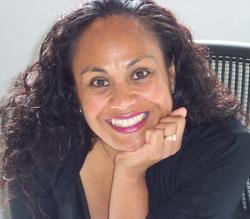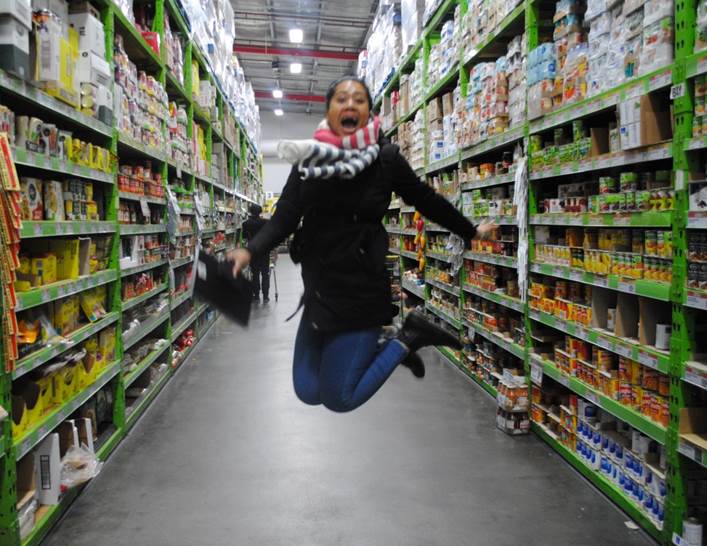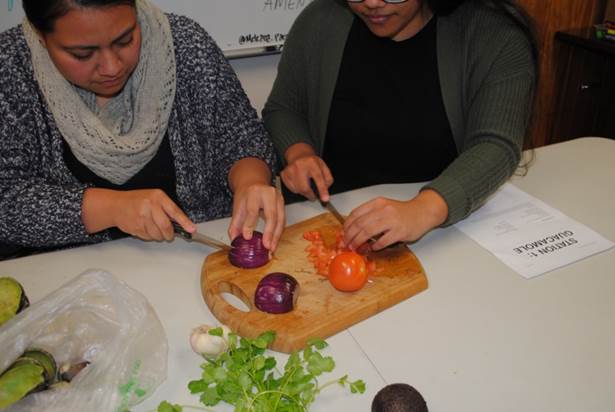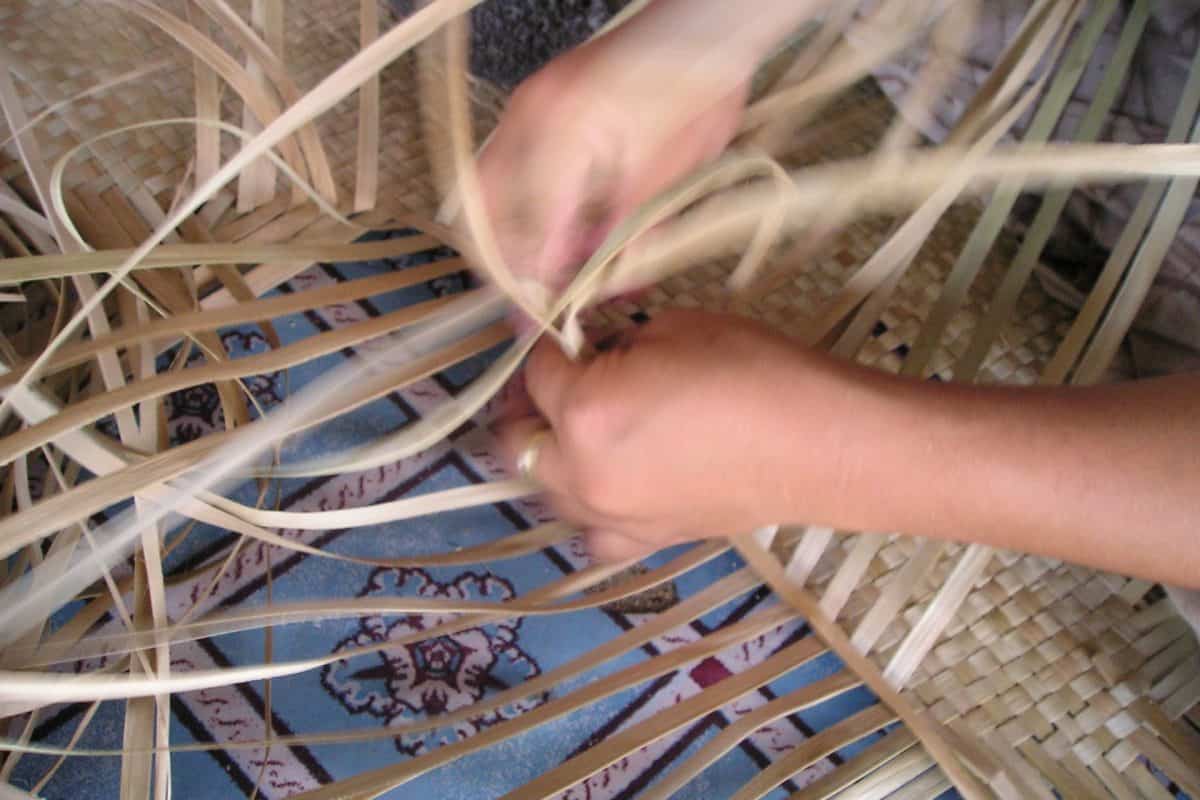Empowering youth for a healthier Pasifika generation
16 October 2018
“If you love yourself and you love the people around you, especially our Pasifika community, then you know what to do; you need to make a change. And this programme is definitely the way to do it.”
Those are the words of Karl Moresi, a participant in the pilot for the Pasifika Prediabetes Youth Empowerment Programme (PPYEP), supported by the Long-Term Conditions funding partnership between the Healthier Lives National Science Challenge, Ministry of Health, and the Health Research Council of New Zealand (HRC).

The programme aims to address the high rates of obesity and prediabetes in young Pasifika people, who have higher rates of both conditions than other groups. About 13.5% of young Pasifika people are affected by prediabetes, compared to 7% for New Zealand Europeans.
The PPYEP study – a scaled-up version of a successful pilot study that ended last year – uses a community-led approach, rather than the ‘top down’ approach of some past interventions.
The community in this case is young Pasifika people aged between 15 and 24, from two large Pasifika populations, one rural community in South Waikato and one urban, in West Auckland.
The young people work with facilitators and are empowered to act as leaders and health advocates in their wider communities, to spread a message of health and develop preventative action plans for larger groups.
Relevant learning and knowledge building
In the PPYEP study, explains principal investigator Dr Riz Firestone, young people go through five months of training in which they learn about the historical and social context of obesity, food literacy, how to navigate the grocery store, community cooking skills, and develop other skills and knowledge about healthier lifestyles that are culturally relevant.
That relevance is important, says Dr Firestone.
“What has happened in the past is that researchers have developed interventions to address obesity without really understanding from a Pasifika perspective what it means for them,” she says.
For example, “From our pilot work, young people had reported that obesity or body size is not a big issue for Pasifika people; for young people. So why would we want to focus on addressing body size? What we really want to do with the study and what we’ve learned through the pilot study is to get an understanding from a cultural perspective on what matters to them to address obesity and prediabetes, based on their priorities and relevance, with some guidance from the research team.”
“We really wanted to understand from a grass-roots level, or look at it as being a bottom-up approach.”
The idea is that once young people are armed with health knowledge, they can decide how best to take that knowledge back to their communities where it can have an impact on the health of others. So part of the programme involves the young people co-designing one intervention for their own communities.

“For example, from our pilot study one of the groups decided that they would run a social media campaign, looking at healthy diet tips, so they used their own social networks,” says Dr Firestone.
Another group of youth decided to go and meet with their church ministers to share their learnings about obesity and the risk factors and health consequences.
“They discussed whether they could try and implement a programme such as the Youth Empowerment Programme within their own church and communal environment. It would be a lot more sustainable at that level, rather than having a top-down approach where researchers come in and say ‘we want you to experiment and do this diet’.”
The study also involves a mental health module, and one around digital narratives or talanoa, where young people look at the obesogenic environment and talk about how that has an impact on their lifestyle through videos recorded on their smartphones.
Greater understanding needed
Dr Firestone says there hasn’t been enough research done into how to prevent prediabetes from developing into type 2 diabetes.
“[It’s important for us with this study to] try to discover what are the factors we need to understand better to change, in order to prevent people with prediabetes from progressing to type 2 diabetes…There’s a lot of research done on obesity, but there’s very little on how we can prevent progression from high levels of obesity and having elevated blood sugar to type 2 diabetes. And how do we screen for that among a younger population?”
Knowing more about the timeframe and screening for prediabetes is necessary to inhibit that progression to developing type 2 diabetes.
“From our perspective it’s important to intervene at an earlier age. If we can prevent that, we’d be doing a lot better than we’re doing now.”
Pasifika people taking control

If the study shows positive outcomes, Dr Firestone says it could be applied in future in far-reaching ways.
“I’d really like this programme to be taken up by various communities or organisations that could use it as part of their [health] services to really build knowledge – relevant knowledge for Pasifika people, and at the right time – so that they can have access to that information earlier on. The programme can empower Pasifika people in general, and activate communities to lead healthier lives, and eventually take control and better responsibility for their lifestyles.”
“We are planning to disseminate the programme initially in mid-late 2019 with face-to-face knowledge transfer with our participating communities, and we’ll be drafting journal publications in early 2020,” she says.
“We are planning a qualitative evaluation of parts of the programme in early-mid 2019,” Dr Firestone says, “but we are already seeing good indicators through a steady maintenance of youth attending approximately 80% of the weekly sessions for the last five months (a long time), and their enthusiastic participation and co-design of the community interventions, which they will be leading.”
Dr Firestone sees wider possibilities, too, with the programme being able to be adapted for use in other areas such as mental health, and with other ethnic communities.
“We often underestimate the power of knowledge and education,” she says.
“That’s definitely something that had come up from our pilot study; that the youth are saying: ‘We don’t often know a lot about these issues, even though we might have heard about it or learned about it at school’. But to have a space where we can intimately pull it apart, in a safe environment, and feel confident to discuss it openly with experts, is an important space to be able to build that knowledge and capacity.”
Read more about the Pasifika Prediabetes Youth Empowerment Programme (PPYEP)
The PPYEP study is jointly funded by the Healthier Lives National Science Challenge, the Ministry of Health, and the Health Research Council of New Zealand (HRC) as part of the Long-Term Conditions Partnership.
Sign up to our Newsletter
"*" indicates required fields


